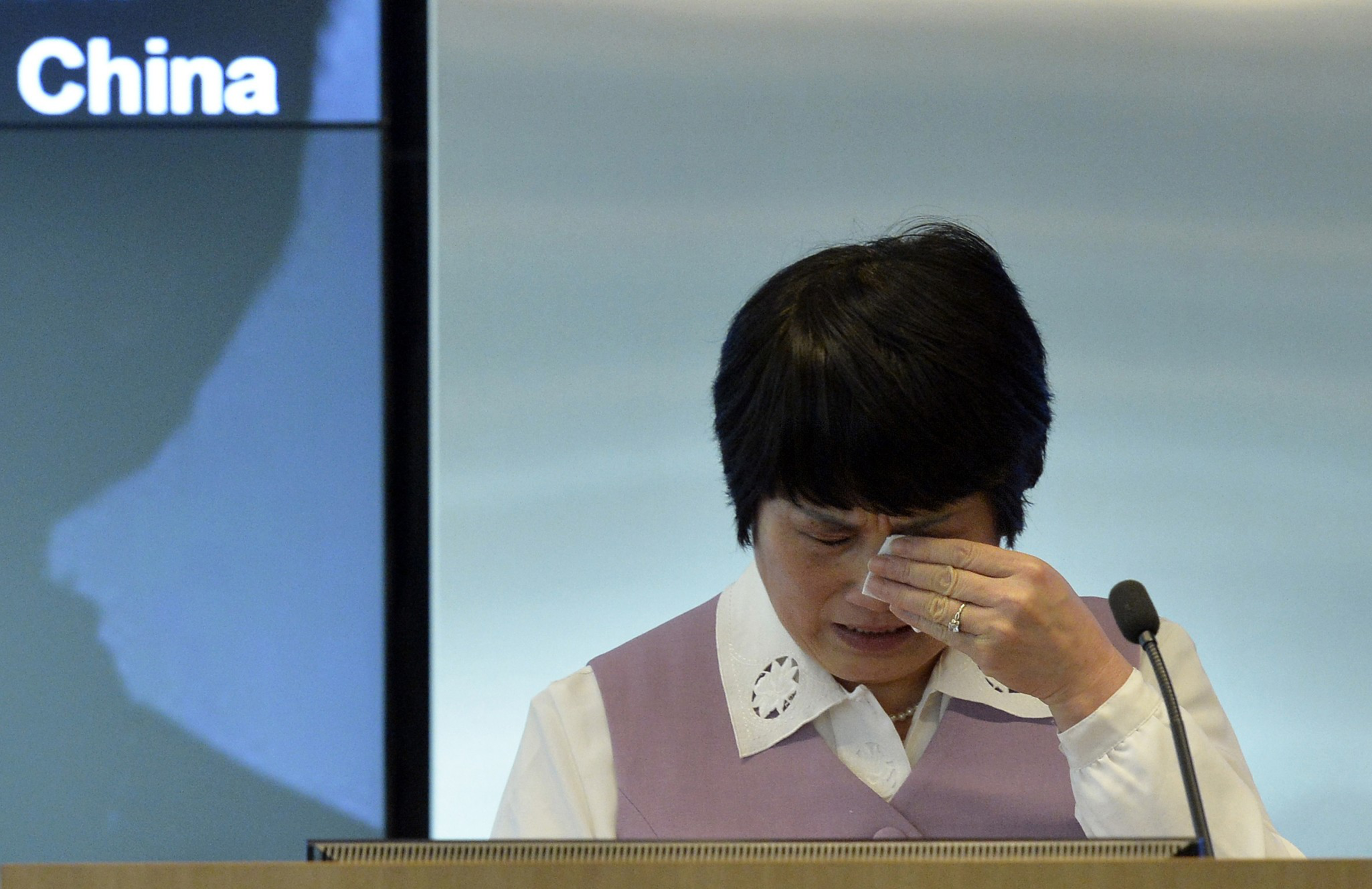Sherry Chen called her landmark settlement (opens in new tab) more than just a personal victory.
The $1.5 million the U.S. government agreed to pay her this past week after a yearslong battle against false accusations that she was a Chinese spy marks a win for all Asian Americans, she said during a private event in Silicon Valley over the weekend.
“And,” she added, “for the rule of law.”
Chen, a Chinese immigrant and naturalized U.S. citizen, made national news (opens in new tab) when she was arrested on economic espionage charges in 2014 while working as a National Weather Service hydrologist.
The government accused her of using a stolen password to download information about dams and vital infrastructure and then sharing those findings with a former grad school classmate who worked for the Chinese government. Though the charges were dropped before the case went to trial, they cost Chen the NWS job.

But the case also sparked a national debate over whether Chen and other scientists facing similar allegations were racially targeted (opens in new tab) by federal law enforcement.
Chen went on to file a civil lawsuit against the U.S. Department of Commerce, which oversees NWS. Multiple organizations filed briefs in the case to support Chen, including the American Civil Liberties Union (opens in new tab). Earlier this month, the legal fight resulted in Chen landing one of the largest settlements ever paid by the Department of Commerce to an individual plaintiff.
Chen said she considers her legal battle as part of a broader cause, one that will hopefully help others like her.
“This [has] been a long journey,” Chen said, “I don’t want that same terrible ordeal (opens in new tab) that happened to me to happen to others. That’s why I fought for so long.”
Chen commended the Bay Area’s Chinese community for supporting her (opens in new tab) throughout the ordeal. During the legal fight, she often visited the region for workshops, press interviews (opens in new tab) and fundraising events.
Though the U.S. government never offered a formal apology for accusing Chen of espionage, a U.S. Department of Justice official told NBC News (opens in new tab) that the agency is “pleased the parties reached a mutually agreed resolution of this lawsuit.”
According to the Congressional Asian Pacific American Caucus (opens in new tab), the Department of Commerce will host a private meeting with Chen to discuss what went wrong to lead to the espionage allegations and what kinds of anti-discrimination reforms are now underway at the agency.
The ACLU said Chen’s case should send a message to public officials.
“It makes clear that profiling and discrimination are unacceptable,” ACLU senior attorney Ashley Gorski said in a statement (opens in new tab), “and that the government will be held to account.”

Chen’s case is hardly unique.
Over the years, a number of other scientists of Chinese descent faced similar espionage allegations. Among them: Wen Ho Lee (opens in new tab), Anming Hu (opens in new tab) and Xiaoxing Xi (opens in new tab). The myriad claims focused on researchers of Chinese ancestry prompted a group of Asian American Congress members to call for an investigation (opens in new tab) into racial bias by federal law enforcement.
Spying Claims in the Bay Area
The Bay Area featured prominently in many reports of alleged spying in recent years because of the region’s economic might and international ties (opens in new tab).
Earlier this year, facing criticism of racial profile of Asian Americans, the Biden administration disbanded the China Initiative (opens in new tab), a program launched in 2018 under former President Donald Trump to counter Beijing’s espionage.
In 2018, U.S. Sen. Dianne Feinstein’s longtime staff, a Chinese American, was reported as a spy (opens in new tab). The now-retired employee, who wishes to stay anonymous and denies the spying allegations to The Standard, was Feinstein’s Asian American community liaison and would attend Chinese consulate events (opens in new tab) on her behalf.
In 2020, UC Davis researcher Juan Tang, who was on a visa from China, was accused of visa fraud and hiding her ties with the Chinese military. She had to take refuge in the Chinese Consulate in San Francisco (opens in new tab), which prompted a wave of local news coverage. The case against Tang was dropped (opens in new tab) in 2021.
Also in 2020, Axios reported (opens in new tab) on spying claims against Chinese international student Christine Fang, who had connections with a wide range of California politicians. Fang has since left the U.S.
